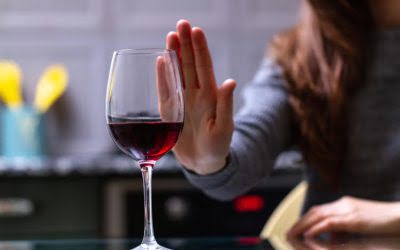Currently, it is unclear if alcohol can lead to the development of IBD. Also, evidence is not sufficient for researchers to provide a general recommendation about alcohol use. However, data is trending toward it having a negative effect https://camalady.ru/uhod-za-litsom-i-telom/koreyskaya-kosmetika-esthetic-house-top-5-luchshih-produktov/ on IBD symptoms. When it looks unusually green, red, or even blue, the alcohol you drank could be the cause. Alcohol makes the immune system weaker, boosts inflammation in the body, and can harm the protective barrier in your gut.
What simple trick empties your bowels?

Changing one’s diet is not easy, which is why working with a dietitian will be helpful. Having both conditions will mean taking care to live the best quality of life possible. Other prevention methods that might be recommended include drinking more water and getting the right amount of exercise. It may not be possible to avoid developing diverticular disease, and not much is known about prevention. However, a high-fiber diet may be recommended once diverticula are present in order to avoid diverticulitis. Diverticulitis may cause symptoms that need to be investigated.

How Alcohol Withdrawal Affects Bowel Movements and Causes Constipation
- On the other hand, 1.5 ounces of gin or tequila can contain around 40% alcohol.
- Prunes are one of the richest fruit sources of sorbitol, so they may be one of the best options to help relieve constipation.
- You also have to consider things like quantity consumed, weight, gender, metabolism, and severity of gut issues.
- Some juices made from fruits and vegetables contain dietary fiber and sorbitol, both of which help regulate bowel movements.
- All cases of straining in the litter box should be evaluated by a veterinarian, because each of these illnesses can become serious or even deadly if left untreated.
Experiencing frequent hard poop means you’re likely also straining to go to the bathroom. This can lead to complications like hemorrhoids (swollen veins in and around the anus) and anal fissures (tiny tears in the lining of the anus). In more severe cases, straining to pass hard stools can cause rectal prolapse, when part of the rectum slips outside the anus. When the hard poop is stuck in your rectum, manual removal of the piece of stool may be needed. A healthcare provider will give you a warm mineral oil enema (fluid that is injected into the colon) to help soften the lump.
Which vitamin deficiency may cause hair loss?
Weight loss teas and other “skinny beverages” often include an ingredient called senna, which is a laxative. Overusing laxatives, even for just a few weeks, can make you dependent on them. So, when you do stop sipping the tea, you may struggle with constipation, per the U.S. There’s no universal http://www.blogbooster.ru/feed.php?feedid=4058&linkid=5922 norm when it comes to how often you should poop — there’s only what’s normal for you. For some, going three times a day is a typical frequency, and for others, going every other day sounds about right. But if you rely on them, your bowels may start to depend on them to function.
To avoid adverse effects, people should start by drinking small quantities of juice. Drinking a mixture of lemon and water may help relieve constipation in some people. Research proving the benefits of prunes for gut health are limited. However, http://www.glazok.ru/news/30/entry/3619/index.html a 2018 study found evidence that consuming 80 grams (g) per day of prunes significantly increased the weight and frequency of stools passed. Drinking plenty of water and healthful juices may help relieve constipation in many cases.
Affects intestinal movement
- Either the alcohol itself causes the problem, or it is the byproduct of poor digestive and intestinal function caused by alcohol consumption.
- This can lead to complications like hemorrhoids (swollen veins in and around the anus) and anal fissures (tiny tears in the lining of the anus).
- Drinking alcohol is an everyday occurrence for millions of people in the U.S.
- It can overwhelm the gastrointestinal tract and cause intestinal inflammation.
- Alcohol can aggravate IBS symptoms for many people, but the research on alcohol and IBS specifically is not definitive.
Symptoms of gastritis include abdominal pain, nausea and vomiting. Most of us know that drinking too much alcohol can have negative effects, from life-threatening situations such as alcohol poisoning and drunken driving to relationship problems and hangovers. I’ve spent the last seven years researching and understanding alcoholism, addiction, and how people get sober.
- If you quit (or significantly cut down on) drinking, your poop problems should improve within a few weeks to a month, according to Dr. Imaeda and Dr. Sinha.
- Normal poop is composed of 74% water, and as the water content increases, the softer the stool may be.
- In more severe cases, straining to pass hard stools can cause rectal prolapse, when part of the rectum slips outside the anus.
- The next step is to determine the underlying cause of your cat’s constipation and address it.
Chronic constipation is having two or more of these symptoms for three months or longer. A 2019 review published in the Scandinavian Journal of Gastroenterology found that exercise showed significant benefits in improving constipation symptoms in nine exercise studies on constipation. This article outlines six normal reasons you might be constipated and what you can do to get relief. A few lifestyle tweaks may be what you need to get back on the porcelain throne more comfortably and confidently. “Laxatives are used to treat constipation, but when abused, laxatives can actually cause constipation to worsen,” Dr. Sonpal says. Similarly, calcium supplements may also have a binding effect, sometimes resulting in gas, constipation and bloating, per the Mayo Clinic.
Totally Normal Reasons You’re Constipated, According to a Dietitian
If diet or lifestyle changes are not enough to ease a person’s symptoms, a doctor or pharmacist may recommend laxative medications to use as a short-term cure for constipation. When a person becomes dehydrated, their intestines cannot add enough water to stools. Dehydration results in hard, dry, lumpy stools that are difficult to pass. But over time, laxatives can damage the nerve cells in your colon and interfere with muscle contractions needed to empty stools.

Deixe um comentário